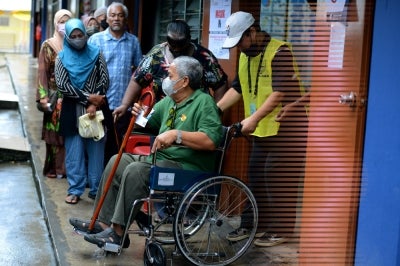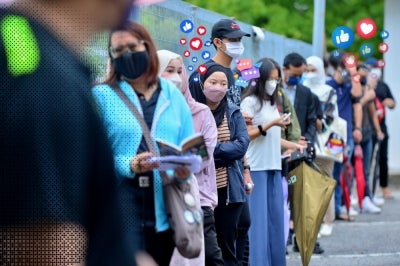Shifting political dynamics in Johor, experts say

SHAH ALAM - The recent results in the Pulai parliamentary and Simpang Jeram state by-elections in Johor have drawn attention to shifting political dynamics in the state, according to political experts.
Universiti Putra Malaysia (UPM) Political Science Professor Datuk Dr Jayum Anak Jawan said the Pulai and Simpang Jeram seats were both held by Amanah and winning the seats in the by-elections served as a recognition that Amanah and its partners were the preferred choice.
"It is an endorsement for Amanah as much as it is for the Pakatan Harapan (PH)-Umno partnership and Datuk Seri Anwar Ibrahim’s premiership.
"This victory must be sweet after the coalition experienced a shift in Malay support away from them in the previous state elections in six states,” he told Sinar Daily.
However, he said the characteristics of Johor (Pulai and Simpang Jeram) were unlike many constituencies in Kelantan, Terengganu and Kedah.
"Johor is a Malay-majority state with a substantial non-Malay population.
"This population characteristic is reflected in Pulai and Simpang Jeram.
"The victory in Pulai and Simpang Jeram is a victory for peaceful multi-ethnic cooperation and should be the way forward in building a better and more united Johor and Malaysia," Jayum said.
Meanwhile, Institute of Ethnic Studies (KITA) Professor Datuk Dr Shamsul Amri Baharuddin said due to the significant presence of non-Malay voters, comprising approximately 40 per cent of the electorate in Pulai and Simpang Jeram, the political landscape in the constituencies has evolved.
He said interestingly, the need for PH to secure victory now depended on capturing just a 2 per cent share of the Malay votes.
In this context, he said if Amanah, PKR or DAP had fielded a Malay candidate, their chances of winning would have been considerably higher," Shamsul said.
Hence, he said the dynamics of the electoral landscape underscored the importance of strategic candidate selection and the potential for shifts in political power based on the preferences of different voter demographics.
Singapore Institute of International Affairs Senior Fellow Dr Oh Ei Sun noted that southern Johor was relatively cosmopolitan due to its proximity to Singapore and is a stronghold of both Barisan Nasional (BN) and PH.
Therefore, he said voters had held on to their conventional political support for the two major coalitions instead of venturing out to experiment with PN in some other supposedly urbanised states such as Selangor and Penang.
"Their fear of a socially regressive green wave must have been much bigger than concern over the recent dropping of charges," Oh said.
Oh was referring to the corruption charges faced by Deputy Prime Minister and Barisan Nasional chairman Datuk Seri Ahmad Zahid Hamidi which was recently dropped after the High Court granted the latter a discharge not amounting to an acquittal (DNAA).
The charges were related to the funds belonging to charity foundation Yayasan Akalbudi.
Download Sinar Daily application.Click Here!















